Melinda Simmons became the United Kingdom’s ambassador to Ukraine only in September, but she’s got ancestral roots to the country.
She is one-quarter Ukrainian. Her great-great-grandparents lived near Kharkiv, Ukraine’s No. 2 city with 2.1 million people close to the Russian border. They divorced, with the paternal side going to Kyiv, some 500 kilometers west of Kharkiv, while the maternal side stayed behind. Both of them were Jewish and feared pogroms if they stayed in Ukraine. So they left in the 1890s.
“He was a tailor. It was a soldier who advised him that he should consider leaving because of the risk of pogroms,” Simmons told the Kyiv Post. “They left Ukraine separately, but at the same time, we think. My great-great-grandfather went on to the United States. My great-great-grandmother came to the United Kingdom and settled in Cardiff.”
The married mother of two adult children has been a Reform Jew since her mid-20s and attends a synagogue in Kyiv regularly on Saturday mornings.
The circumstances of her ancestors’ departure make her more acutely aware of anti-Semitism and other reasons why people leave Ukraine, and of the challenges facing President Volodymyr Zelensky, Ukraine’s first Jewish president, in building a modern and tolerant European democracy.
The UK is one of Ukraine’s staunchest allies, uncompromising in keeping sanctions on Russia until the Kremlin ends its six-year war against Ukraine and returns the territories it is occupying, including Crimea and parts of the eastern Donbas.
The British government also has long been involved in helping Ukraine to improve rule of law, military preparedness, health care, the state of independent media, and
strategic communications — particularly a school program called “Learn to Discern” that helps students identify misinformation and fake news.
But Simmons, like the rest of the world, has had her priorities upended by COVID-19. The lockdown means being away from her husband of 24 years, former journalist Stephen Bevan, and their children, who are in the UK.
“It really hurts to be separated like this, yet we hold on to the fact that at some point we will see each other, although we don’t know quite when,” she said.
Like everyone else still employed, she finds herself working harder than ever to maintain contacts electronically and press forward with her diplomatic mission. Her interview with the Kyiv Post took place via Zoom on April 15.
She laments not being able to have gatherings at the enormous British residence and back yard that provides an idyllic setting for garden parties in the Pechersk neighborhood
near the Motherland Monument. “I put it to use as much as I possibly can,” she said. “There’s been quite a diverse range of people who have come through this place.”
She’s toying with the idea of planting vegetables. In her off time, she works on improving her Ukrainian language skills — by learning Ukrainian folk songs while playing
her guitar and by obsessively watching Ukrainian TV programs. She also enjoys trying out Latin American dance moves that she watches on YouTube. She gets exercise by boxing in the mornings, with a punching bag taking her blows. To her delight, she has found time to read 1,000-page novels, something she was too busy for B.C.— Before
Coronavirus.
Diverse background
This is Simmons’ first ambassadorship since joining the Foreign & Commonwealth Office in 2013, where she started as deputy director of the conflict department. Her career has included stops in the business and non-governmental sectors as well as in government. She has been heavily engaged in conflict resolution and, from 1997 until 2013, she
worked in the UK’s Department for International Development, which is responsible for overseas assistance.
In 2018, she underwent full-time Ukrainian language training. She said that she can speak “not badly” in Ukrainian, but needs work on improving her listening comprehension.
Her diverse background, which also includes a B.A. degree in modern languages and an M.A. degree in European politics, “makes it pretty easy to talk to anyone,” she said.
Her master’s thesis — about conflict resolution between Russia and the Central Asian “Stans” — still comes in handy, she said.
Diplomatic priorities
Even with the coronavirus lurking menacingly, life goes on, and the UK and Ukraine have plenty to keep them busy.
One is to fashion a free-trade agreement made necessary by the UK’s withdrawal from the European Union. Fortunately, Simmons says, the two nations agree on most issues
and are “85 percent of the way there.” The deal, she said, will resemble Ukraine’s free-trade agreement with the EU. The idea is to nurture what is now a $2.5 billion annual relationship. Simmons said agriculture, information technology and green energy are among the most promising areas.
But just as every British ambassador before her has warned, UK investors want to see rule of law take root before they are willing to risk big investments in Ukraine.
“Any business coming in here has to know that the law has their back, that they will be treated fairly and disputes will be resolved in a transparent way,” Simmons said. “I still
think that Ukraine has some way to go to get that right. It comes back to judicial reform and why it’s so important.”
London money laundering
Ukraine’s corruption extends all the way to the UK. In fact, one complaint about the UK is that its financial services and other sectors, like real estate, have been too accommodating in attracting dodgy money from Ukraine and around the world. The nickname of London as “money laundering capital of the world” even started to stick.
The criticism stung, at least enough for ex-Prime Minister David Cameron to convene an Anti-Corruption Summit in 2016. Ideas emerged, including an international property register that would smoke out the identities of the true owners, rather than allow them to hide behind a complex web of shell companies. Banks have also been forced to be more intrusive with clients under “know-your-customer” principles.
Another anti-money laundering instrument that has not yet lived up to its promise is unexplained wealth orders, which came into being in 2017. They allow government to
freeze suspect bank accounts to determine if the assets and money were acquired legally.
One problem is that they have rarely been used so far, according to UK news reports. There are also legal challenges. On April 16, Global Investigations Review reported that
“London lawyers have said (the High Court in London’s) recent dismissal of three unexplained wealth orders obtained by the National Crime Agency is a blow for the agency that could change how it uses the orders.”
Several cases involving state-owned PrivatBank are being litigated in UK courts. The lawsuits seek to recover $5.5 billion allegedly stolen from the bank through insider lending by its former owners, billionaires Ihor Kolomoisky and Hennadiy Boholyubov. According to PrivatBank, Kolomoisky and Boholyubov parked $1.9 billion in six companies, three in Britain and three in the British Virgin Islands.
A ‘game-changer’
The ambassador called Cameron’s 2016 conference a “game-changer” that got different parts of government working together more effectively. The unexplained wealth orders
“are going after people with the assets to be able to beat that back. It’s going to take longer and it’s going to be harder to bring people to account that way,” she said, cautioning against expectations of quick results.
Another potentially promising aspect of unexplained wealth orders, she said, is whether the financial services industry “can be equally culpable” for illegal money flows. She said that while “it’s too early to measure” how effective unexplained wealth orders will be, she insisted that “the state is working much better together” and that London “is also
becoming a place that is understood to be committed to tackling corruption.”
Kyiv must do its part. “This has to be a team effort,” she said. Specifically, Ukrainian law enforcement authorities need to cooperate with UK authorities in providing evidence of illegal acts or suspected wrongdoing.
“That’s been a bit of a challenge, before this government,” she said.
That may be a bit of an understatement.
One big international scandal took place in 2014 when the Serious Fraud Office in the UK froze $23 million in bank accounts belonging to Mykola Zlochevsky, owner of
Burisma energy company. Zlochevsky was an ecology minister under President Viktor Yanukovych, the kleptocratic Kremlin-backed president ousted in 2014 by the EuroMaidan Revolution.
Zlochevsky’s Burisma ended up with lucrative oil and gas exploration licenses approved by the ministry he headed — a seemingly textbook case of official corruption. But rather than receive evidence of illegality from Ukrainian prosecutors, UK authorities instead got a letter saying that prosecutors had no case against Zlochevsky. A London
court unfroze the assets in 2015.
Simmons has faith that UK courts will deliver justice in the end. As for Ukraine, she said, judicial reform will be difficult and complex.
Iranian shoot-down
But she sees reasons for optimism with President Volodymyr Zelensky. “He wants to do the right thing. I’m absolutely clear about that. He believes in keeping the faith in terms of the commitments that he’s made — to tackle corruption, achieve growth, build a strong independent state and finish the war.”
She said she was impressed by Zelensky’s response to the Iranian military’s shoot-down of Ukraine International Airlines flight PS752 on Jan. 8, killing all 176 people aboard,
including three British citizens. The way that Zelensky effectively reached out “to brief countries and negotiate with the Iranians showed a real degree of maturity,” she said. “That showed us all a lot about what the government is capable of.”
He said that she also sees signs of the same effectiveness in getting the agricultural land market law passed recently and now in overcoming lawmakers trying to block the passage of a law to combat bank fraud. Both pieces of legislation are required for Ukraine to get International Monetary Fund loans of $8 billion.
Visa problems
The topic that she gets asked about most frequently by Ukrainians is visa liberalization and the prospect of visa-free travel, a privilege that Ukrainians have become accustomed to since the 26-nation Schengen Area dropped visa requirements in 2017.
The quarterly statistics provided by the UK government for 2018 and the first two quarters of 2019 show a rejection rate of only 8% to 10%. The number of applications reached 20,160, according to the most recent quarterly data available.
Simmons defends the visa requirements, saying that “we weren’t a Schengen country for a very good reason.” The UK is worried about organized crime, illegal trafficking
in goods and people, fake passports, and terrorism. Assuming all the requirements are met, Simmons said, it is the UK’s goal to process all applications within two weeks.
Just as with the United States and Canada, however, Ukrainians will not enjoy visa-free travel to the UK soon.
Getting good information
Queen Elizabeth II’s representative in Ukraine tweeted approvingly recently when lawmakers in Ukraine’s parliament passed a state budget that included money for public television. Developing independent media is among the UK’s priorities in its bilateral assistance of roughly 50 million pounds annually, a figure that some in the UK find
appallingly low.
Simmons noted that most news media outlets in Ukraine are owned by oligarchs or business groups with agendas. “If you are building a strong democratic state accountable to its people; enabling a strong independent voice is a pillar of that,” she said. She is an avid reader of the press in the UK, where her husband worked as a journalist for 20 years, including as a news editor at The Sunday Times in London.
Budapest Memorandum
A lot of people have forgotten about the 1994 Budapest Memorandum, in which the United States, UK, and Russia offered security assurances to Ukraine in exchange for Kyiv giving up its Soviet-era nuclear weapons arsenal. The assurances turned out to be worth little, with the Kremlin occupying 7 percent of Ukrainian territory for the last six years.
A lot of officials in the United States and the UK would like to forget about it. Simmons noted that the memorandum is “not a legal document.” She says that she never gets asked about it from anyone in the Ukrainian government. “They resolutely look toward allies they have now and the UK is a very consistent and strong ally,” she said. “For me what’s important is what is happening now. There’s no question that this war is incredibly difficult to be able to resolve.” Helping Ukraine prevail is a challenge that the UK is
“not going to walk away from.”
COVID-19
For now, solving COVID-19 is the world’s universal challenge. Simmons noted that the UK is the biggest donor for vaccine research. She credits Ukraine for being “very prompt in applying lockdown,” although she said the messages from the government could have been delivered more clearly. She said it’s “too early to tell” what precise remedies are needed to end the pandemic.
“It challenges us all. I don’t think any of us can suggest that in a few weeks all will be back to normal,” she said. “All of us need to think again how to adapt our support so that the extra challenges that the Ukrainian government faces are not undermined by the pandemic here.”
You can also highlight the text and press Ctrl + Enter


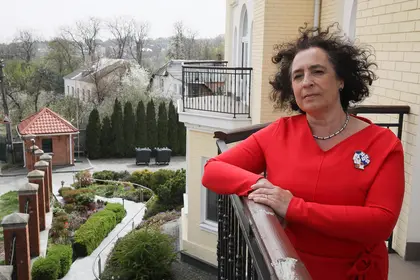
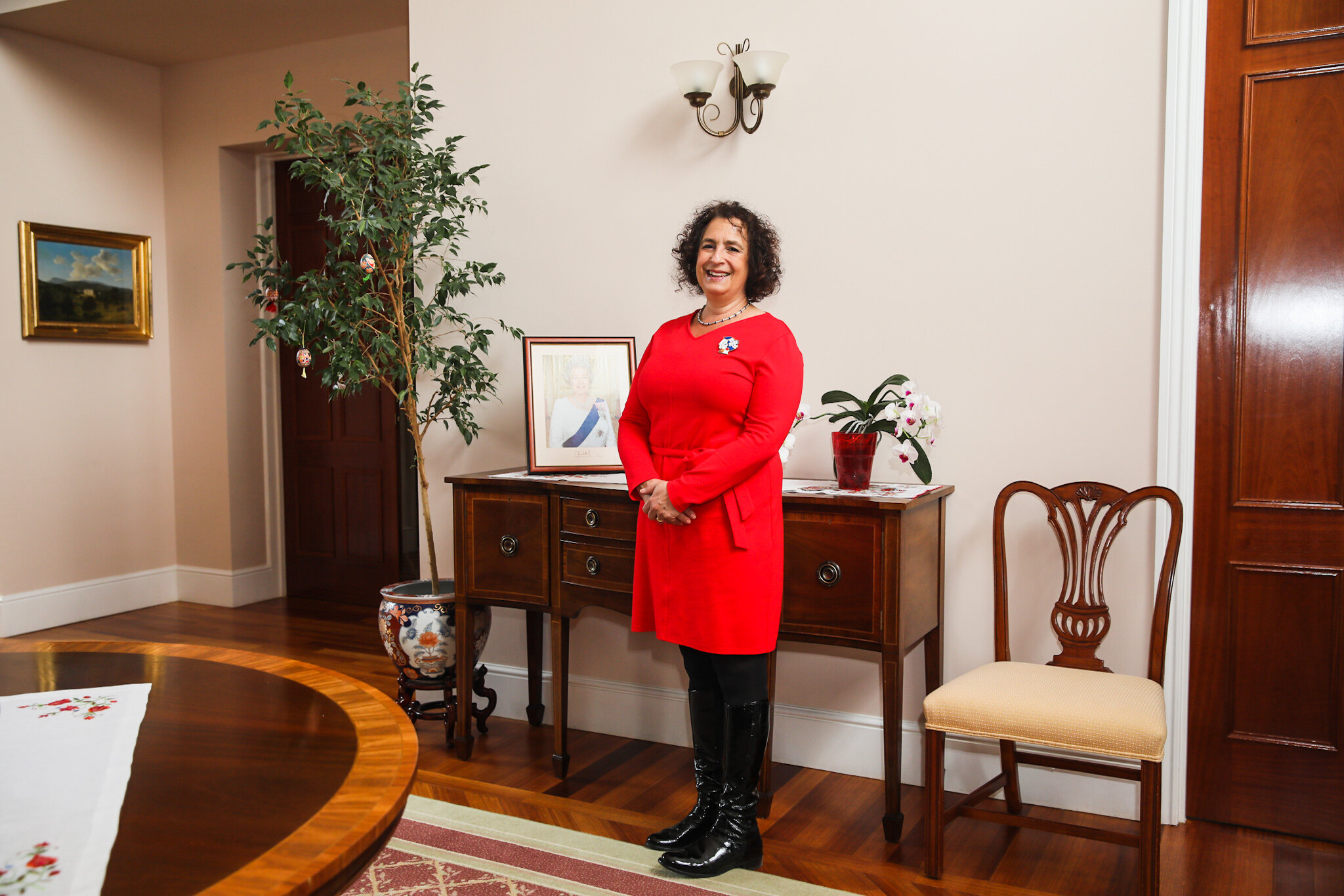

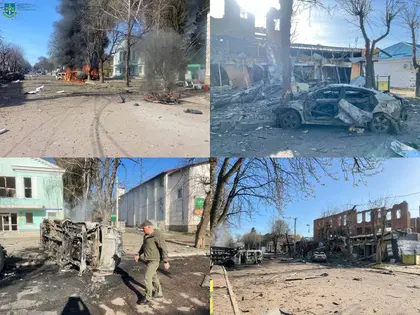
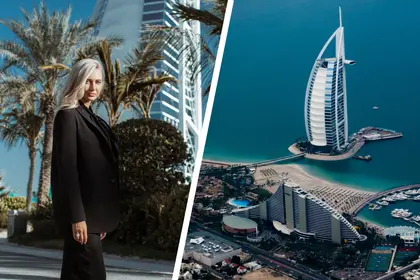
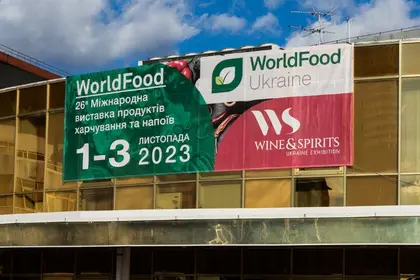
Comments (0)